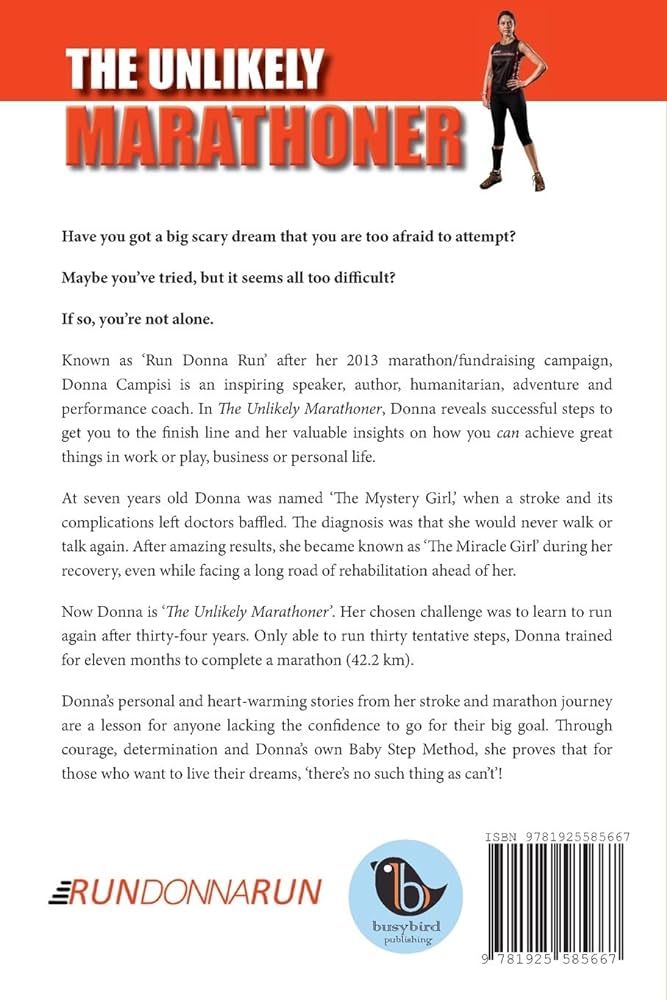How to Marathon Train in the Winter
To marathon train in the winter, focus on layering clothing, staying hydrated, and adjusting your pace to the weather conditions. Winter marathon training requires strategic planning to endure the cold and maintain peak performance.
As the temperatures drop and snow falls, maintaining your marathon training can be challenging. However, with the right gear, mindset, and preparation, you can conquer the winter weather and stay on track with your training plan. We will discuss how to effectively train for a marathon during the winter months.
We will cover essential tips and strategies to help you stay motivated, prevent injuries, and optimize your performance in the winter weather. With the right approach, you can overcome the challenges of winter training and achieve your marathon goals.

Credit: www.runnersworld.com
Benefits Of Winter Marathon Training
There’s no denying that winter can present its fair share of challenges when it comes to marathon training. The shorter days, icy sidewalks, and chilly temperatures can make it tempting to hibernate indoors rather than hit the pavement. However, training for a marathon in the winter months actually comes with a range of benefits that can help you become a stronger and more resilient runner. In this article, we will explore the various advantages of winter marathon training, including how it boosts mental toughness and improves cold weather endurance.
Boosts Mental Toughness
Training for a marathon in the winter requires a different level of mental strength. The icy winds, biting cold, and discomfort can easily discourage even the most dedicated runners. By pushing through these challenges, you build mental resilience and cultivate a “can-do” attitude that translates to other aspects of life. The ability to overcome obstacles in adverse conditions enhances your determination and teaches you how to stay focused on your goals, regardless of the circumstances.
Improves Cold Weather Endurance
Running in cold weather forces your body to adapt to the lower temperatures, making it more efficient at generating and retaining heat. Your cardiovascular system works harder to keep you warm, leading to an increase in your overall endurance. As your body adjusts to the colder climate, you’ll notice improved lung capacity, better circulation, and a higher tolerance for running in challenging weather conditions.
Besides physical benefits, training in the winter also allows you to experience the beauty of nature in its frozen state. Running through snow-covered landscapes and seeing your breath in the crisp air can be a magical experience, providing a sense of tranquility and rejuvenation during your training sessions.

Credit: issuu.com
Key Considerations For Winter Marathon Training
When training for a marathon during winter, there are specific considerations that need to be taken into account to ensure a successful and safe training experience. The colder temperatures, icy conditions, and shorter daylight hours present unique challenges that require careful planning and preparation. Here are the key considerations to keep in mind for winter marathon training:
Clothing And Gear Selection
Choosing the right clothing and gear is essential for braving the cold weather during marathon training. It’s important to dress in layers, including moisture-wicking base layers, insulating mid-layers, and a windproof and waterproof outer layer. High-quality, moisture-wicking socks, thermal gloves, a hat, and a neck gaiter to protect exposed skin are also crucial. Additionally, investing in sturdy and grippy running shoes with ample traction can help prevent slips and falls on icy or snowy surfaces.
Hydration And Nutrition In Cold Weather
Maintaining proper hydration and nutrition is just as important in cold weather as it is in warmer months. Hydrating consistently with small sips of water is key, as it is easy to overlook the need for fluids when the weather is cold. Consuming carbohydrate-rich snacks and warm beverages before, during, and after runs can help sustain energy levels and keep the body warm. Additionally, considering vitamin D supplementation to compensate for the reduced exposure to sunlight during winter is essential for maintaining overall health during marathon training.
Adjusting Your Training Plan For Winter Conditions
Prepare for winter marathon training by adjusting your plan to accommodate the challenging conditions. Incorporate indoor options and cross-training to maintain fitness levels when weather conditions are not favorable. Stay consistent with your workouts despite the cold weather to keep progressing towards your marathon goals.
Adjusting Your Training Plan for Winter Conditions Winter conditions can pose unique challenges for marathon training. Adjusting your training plan for the colder weather, snow, and ice is essential to ensuring a safe and effective preparation. Here are some strategies to keep your training on track during the winter months.Incorporating Indoor Workouts
During the winter, incorporating indoor workouts can be a valuable addition to your marathon training plan. Utilize gym facilities or invest in a treadmill for indoor running. Indoor cycling, swimming, and strength training can also be beneficial cross-training exercises to maintain fitness and endurance.Making Adjustments For Snow And Ice
When faced with snow and ice, it’s important to make adjustments to your training plan to ensure safety. If outdoor running becomes hazardous, consider using cleats or traction devices for your shoes. Additionally, adapting your route to avoid particularly icy areas and choosing well-lit and cleared paths can minimize the risk of injury. By integrating indoor workouts and making adjustments for snow and ice, you can effectively adapt your marathon training plan to conquer the challenges of winter conditions.Tips For Staying Motivated During Winter Training
Training for a marathon in the winter months can be a daunting task, with colder temperatures and less daylight. However, with the right mindset and strategies, you can stay motivated and continue making progress towards your marathon goals. In this article, we will explore some tips to help you stay motivated during winter training, including setting realistic goals and creating a support network.
Setting Realistic Goals
One of the keys to staying motivated during winter training is setting realistic goals. When the weather is less than ideal and motivation is low, having specific and attainable goals can help keep you focused and motivated.
Here are some tips for setting realistic goals:
- Start by evaluating your current fitness level and previous marathon performances. This will help you set goals that are challenging yet achievable.
- Break down your marathon goal into smaller milestones. This will allow you to track your progress and celebrate achievements along the way.
- Consider the limitations of winter training, such as weather conditions and daylight hours. Adjust your goals accordingly to ensure they are feasible.
- Make your goals measurable and time-bound. For example, instead of just aiming to complete the marathon, set a specific finish time or aim to improve your pace by a certain amount.
- Write down your goals and place them somewhere visible, such as on your bedroom wall or bathroom mirror. This constant reminder will help keep you focused and motivated.
Creating A Support Network
Another strategy to stay motivated during winter training is to create a support network. Having others who understand the challenges you’re facing and can provide encouragement and accountability can make a big difference in staying motivated.
Here are some ways to create a support network:
- Join a local running group or club. This will give you the opportunity to meet like-minded individuals and train together.
- Find a running buddy who has similar goals and schedules. Having someone to run alongside can make those cold and dark winter runs more enjoyable.
- Use social media to connect with other runners. Join online communities or follow hashtags related to marathon training. By sharing your journey and connecting with others, you can stay motivated and inspired.
- Consider hiring a running coach or personal trainer. They can provide guidance, support, and personalized training plans to help you stay on track.
Preventing Injuries While Training In The Winter
Winter marathon training comes with unique challenges, especially the risk of injuries due to the cold weather and slippery conditions.
Proper Warm-up And Cool Down
Always start with a dynamic warm-up to prepare your muscles for the run and end with a thorough cool down to aid in muscle recovery.
Listening To Your Body
Pay close attention to any signs of discomfort during your run. Stop immediately if you feel pain to prevent injuries.

Credit: www.halhigdon.com
Frequently Asked Questions Of How To Marathon Train In The Winter
How Do You Train For A Full Marathon In The Winter?
To train for a full marathon in winter: 1. Layer your clothing to stay warm and dry. 2. Find an indoor track or treadmill for running. 3. Incorporate cross-training activities like swimming or cycling. 4. Keep hydrated and nourished, even in cold weather.
5. Stay motivated by joining a running group or setting goals.
Is It Ok To Run A Marathon With A Cold?
Yes, it is generally okay to run a marathon with a cold if symptoms are mild. However, it’s important to listen to your body and not push too hard. Be mindful of hydration and consider if it’s safe to be around other runners.
How Many Months Do You Need To Train For A Marathon?
It generally takes 4-6 months to train for a marathon, depending on your current fitness level and running experience. Consistent training with a gradual increase in mileage is important to build endurance and prevent injuries. Working with a coach or following a structured training plan can help you prepare effectively.
Conclusion
Don’t let the winter weather deter you from marathon training. With these tips, you can stay motivated and prepared for the big race. Remember to dress appropriately, adjust your training schedule, and listen to your body. Keep your goals in mind and stay consistent.
By following these strategies, you’ll be well-equipped to conquer the winter elements and achieve your marathon goals. Happy training!




